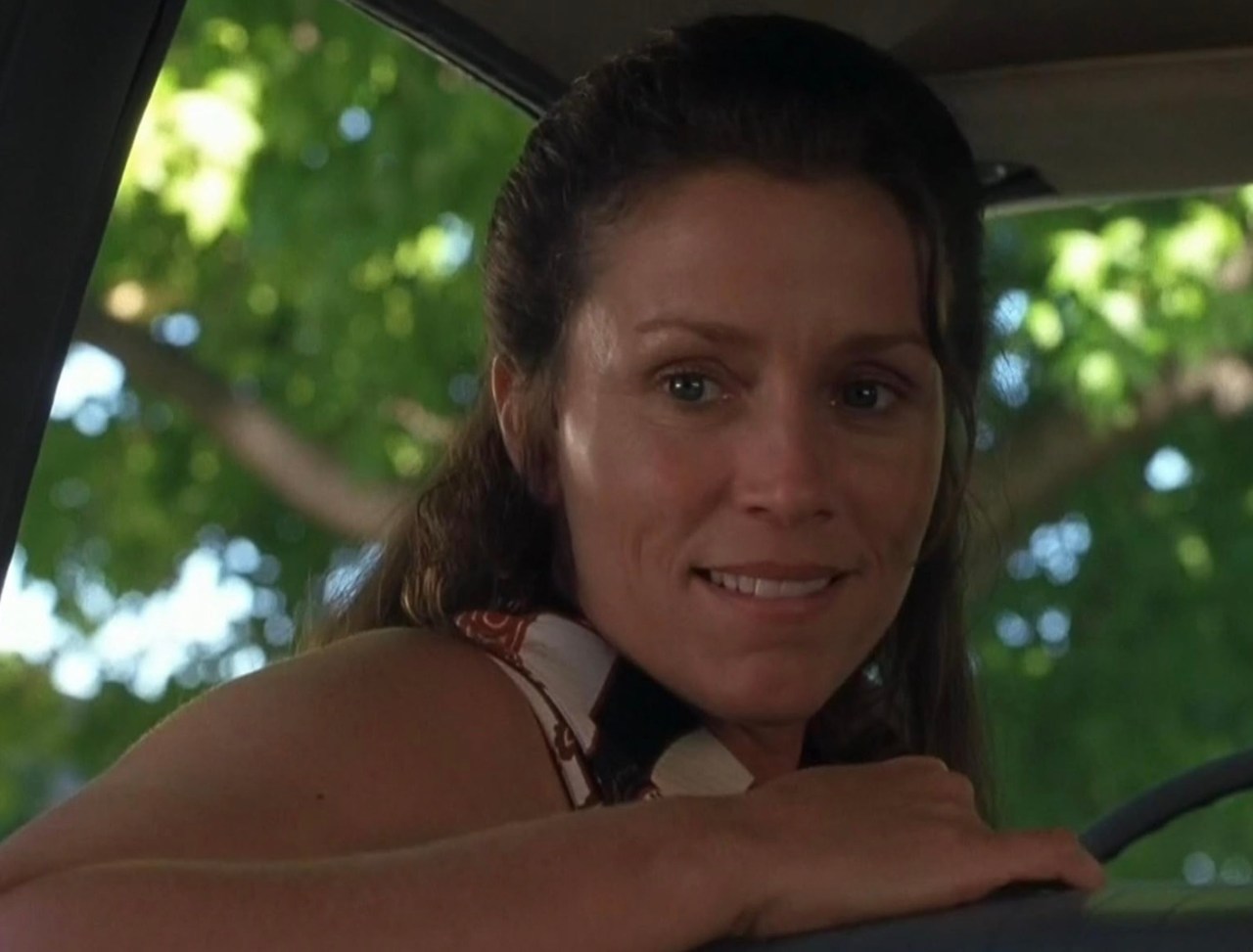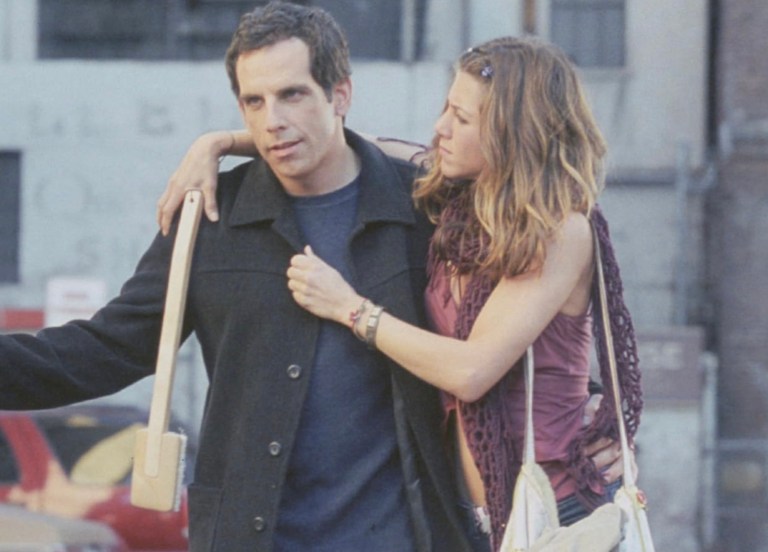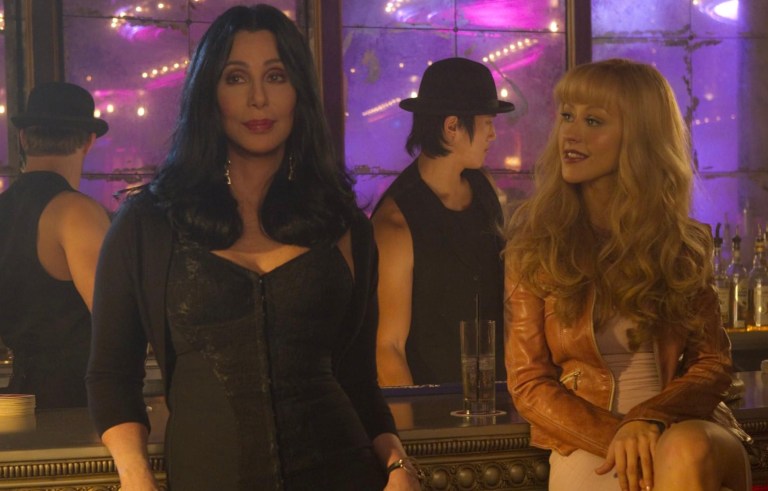
Celebrating Frances McDormand’s Funniest Lines in ‘Almost Famous’ for the Film’s Anniversary
By ![]() Josh Lezmi
Josh Lezmi
Frances McDormand stole the spotlight as Elaine Miller in ‘Almost Famous.’ Here are her funniest and most memorable quotes.
On September 13, 2000, Almost Famous premiered in theaters with Oscar-winning actress Frances McDormand portraying the supporting character Elaine Miller. The film follows her son, an aspiring journalist who, at a mere 15 years of age, is given the chance to accompany an up-and-coming rock band on their concert tour for Rolling Stone — at a ridiculously discounted wage due to his utter lack of professional experience.
Dormand plays the overprotective maternal figure who — though wise and well-educated — is the epitome of a helicopter parent who won’t rest until her baby boy is home safe with his head in her lap. She also boasts a delusional, academic-inclined perspective concerning adolescence — one that eschews ideas surrounding decades-old social structures in favor of being “unique” and “superior.” Anxious, aggravatingly all-knowing, and shockingly “uncool,” Elaine boasts some of the funniest lines in the modern classic.
“Rock stars have kidnapped my son!”
This may be Miller’s most oft-quoted line from Almost Famous, which she blurts out mid-college lecture. While teaching her students about intuition — the so-called “sixth” sense” of humankind — she notes that she can’t concentrate. She grabs the podium with both hands and with a stern, steady voice and deadpan expression, she informs her students that “rock stars have kidnapped [her] son.” Her delivery — lacking any shred of facetiousness — is what makes this line all the more hysterical. Her son is willingly on this concert tour, yet she fully believes, without a doubt, that her boy has been taken from her by dangerous rock & rollers who will rob him of his beautiful innocence.
“You are rebellious and ungrateful of my love.”
Elaine is in the car with her two children: William and Anita. She begins to praise her academically advanced and unique child who should not compare himself to the typical preteens that lurk among him in the hallways. She notes that his father saw his great potential. This leads Anita to ask “What about me?” Elaine looks at her daughter with a countenance that conveys both love and disappointment and utters this classic line. She doesn’t hold back. Brutal honesty is clearly part of her parenting philosophy, which is so ingrained in her educational proclivity that she often lacks that “gentle touch.” She’s got no tact. It’s the brutality mixed with the tender expression that seals the deal. It’s almost as if she’s firing Anita from her job as her daughter…until further notice.
“Adolescence is a marketing tool.”
When Anita tells her mother that — by placing her son in first grade a year early and allowing him to skip fifth grade — she is robbing her child of an adolescence, Elaine responds with this zinger. It’s not exactly untrue, as the Hollywoodification of adolescence has certainly created this rose-hued representation of the hormone-fueled, acne-centric, clique-heavy period. Coming-of-age is a descriptor that sells tickets at the box office. Adolescence is a term that helps sell youth-targeted magazines on the shelf. That being said, it’s a bit heavy-handed and hyperbolic. She’s not fully wrong; her viewpoint is once again, stifled by her tendency to factor in the head and leave out the heart. However, this is what makes Elaine ceaselessly funny.
She is so cerebral, yet also such a worry wart that she intellectualizes her feelings and seeks to control everything around her. It is the juxtaposition between her intelligence and her uptight anxious parenting style that lends way to such unexpected rebukes.
“Don’t take drugs.”
What could be more mortifying than your mother yelling “Don’t take drugs” out of the car window when she drops you off at a rock concert? Teenagers and 20-somethings walking into the concert with beers in their hands mimic her with an exaggerated degree of sarcasm. She leaves her already dweebish son to appear even more dweeby to the other patrons. She’s smart enough to know this would embarrass him but too anxious to allow her intrusive thoughts to go unproclaimed. She looks at her son apologetically after the fact, but it’s too late: the damage has already been done. Oh Elaine, could you be more uncool? This is an instance of pure cringe comedy.
“This is not some apron-wearing mother you’re speaking with – I know all about your Valhalla of decadence and I shouldn’t have let him go. He’s not ready for your world of compromised values and diminished brain cells that you throw away like confetti. Am I speaking to you clearly?”
Really, Elaine, “Valhalla of decadence?” We just can’t with you. This is the threat Elaine issues to rock and roll musician Russell after he futilely tries to charm her into subservience. It is the word choice that really wins us over here. It’s a bit too perfect — a bit beyond the everyday rebuttal — but we let it slide given her college professor characterization. “Throwing away brain cells like confetti” creates such a powerful mental image that lingers long after the sentence reaches its conclusion.
Her tempo quickens as she speaks. The words spill out of her mouth with fervor as her anxiety intensifies and her righteousness blooms. She goes from seemingly imagining disaster striking her son to doing all in her power to ensure such disaster never comes to fruition. The delivery is a somewhat maniacal consequence of her rampant imagination — one that equates rock and roll musicians to Satan’s spawn. The moment is so relatable to any parental figure with an impressionable child, as each word slips from her mouth as if hours behind the words to come. You have to laugh, for it’s coming from a place of such real emotion, despite all the logical fallacies at the center.
“Well, what’s wrong with THAT?”
This one requires a little bit of context. Anita tells her mother that the kids at school call William “a narc,” going on to explain that it’s short for “narcotics officer,” in an insult akin to “tattletale.”
Elaine, in the most Elaine-est of replies, innocently asks, “What’s wrong with that?” It’s a good job would be her follow-up sentence had she uttered one. She is blissfully unbothered by the rampant teasing and bullying such a term insinuates, and simply pleasantly content with the good-boy reputation it denotes. Oh, Elaine, we know you want what’s best for your son, but you can’t want it at such a high expense.











